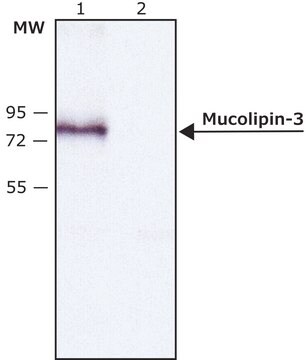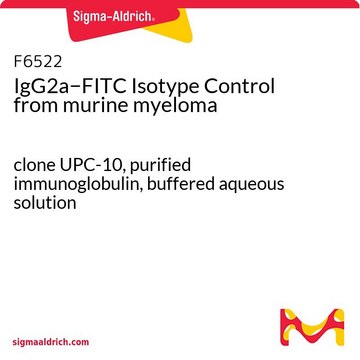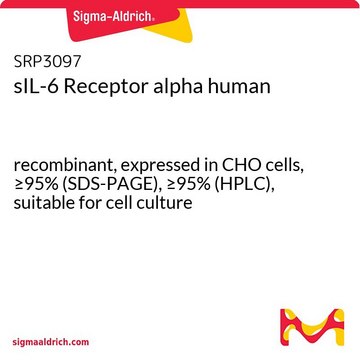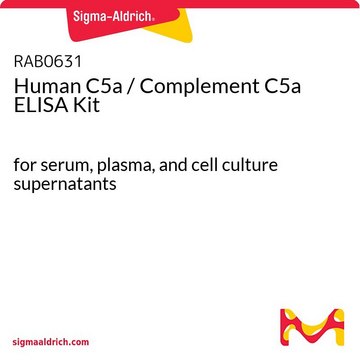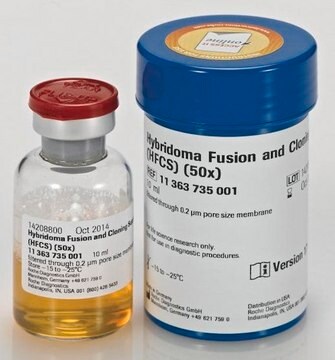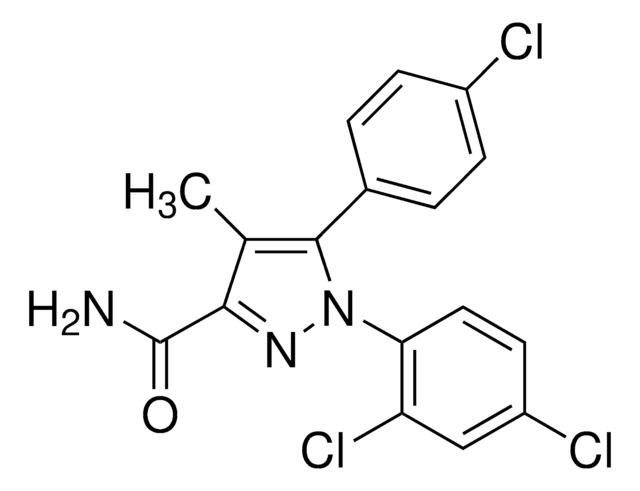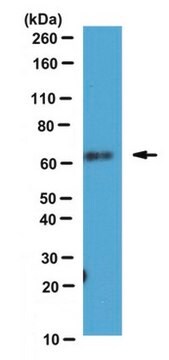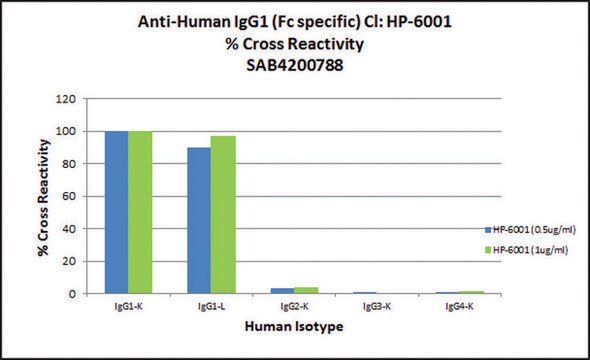M7570
Anti-Mucolipin-3 (N-terminal) in Kaninchen hergestellte Antikörper

~1.5 mg/mL, affinity isolated antibody, buffered aqueous solution
Synonym(e):
Anti-MCOLN3, Anti-MLN3, Anti-TRPML3
About This Item
Empfohlene Produkte
Biologische Quelle
rabbit
Konjugat
unconjugated
Antikörperform
affinity isolated antibody
Antikörper-Produkttyp
primary antibodies
Klon
polyclonal
Form
buffered aqueous solution
Mol-Gew.
antigen ~75 kDa
Speziesreaktivität
human
Erweiterte Validierung
recombinant expression
Learn more about Antibody Enhanced Validation
Konzentration
~1.5 mg/mL
Methode(n)
western blot: 0.25-0.5 μg/mL using HEK-293T cells expressing human mucolipin-3
UniProt-Hinterlegungsnummer
Versandbedingung
dry ice
Lagertemp.
−20°C
Posttranslationale Modifikation Target
unmodified
Angaben zum Gen
human ... MCOLN3(55283)
mouse ... Mcoln3(171166)
rat ... Mcoln3(308022)
Allgemeine Beschreibung
Immunogen
Anwendung
has been used in immunoblotting and immunostaining.
Biochem./physiol. Wirkung
Physikalische Form
Haftungsausschluss
Sie haben nicht das passende Produkt gefunden?
Probieren Sie unser Produkt-Auswahlhilfe. aus.
Ähnliches Produkt
Lagerklassenschlüssel
10 - Combustible liquids
WGK
nwg
Flammpunkt (°F)
Not applicable
Flammpunkt (°C)
Not applicable
Hier finden Sie alle aktuellen Versionen:
Analysenzertifikate (COA)
Die passende Version wird nicht angezeigt?
Wenn Sie eine bestimmte Version benötigen, können Sie anhand der Lot- oder Chargennummer nach einem spezifischen Zertifikat suchen.
Besitzen Sie dieses Produkt bereits?
In der Dokumentenbibliothek finden Sie die Dokumentation zu den Produkten, die Sie kürzlich erworben haben.
Unser Team von Wissenschaftlern verfügt über Erfahrung in allen Forschungsbereichen einschließlich Life Science, Materialwissenschaften, chemischer Synthese, Chromatographie, Analytik und vielen mehr..
Setzen Sie sich mit dem technischen Dienst in Verbindung.
